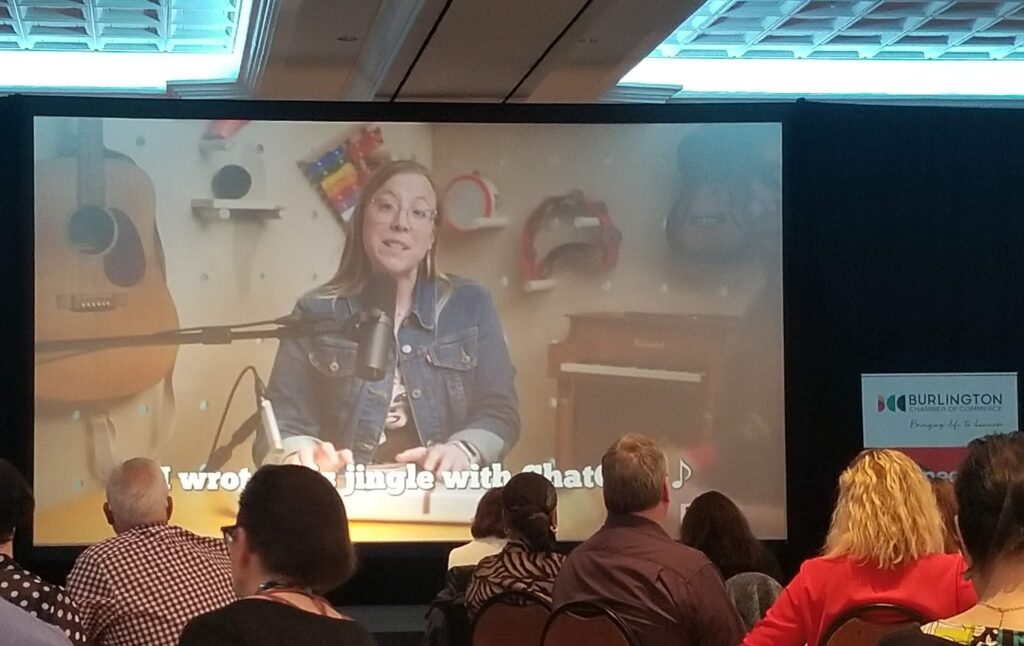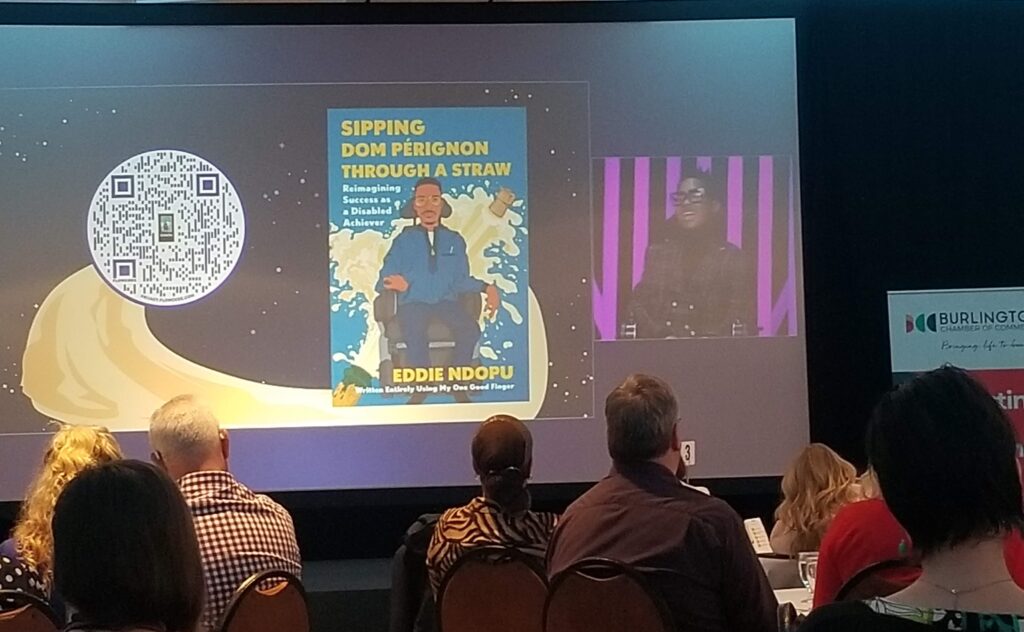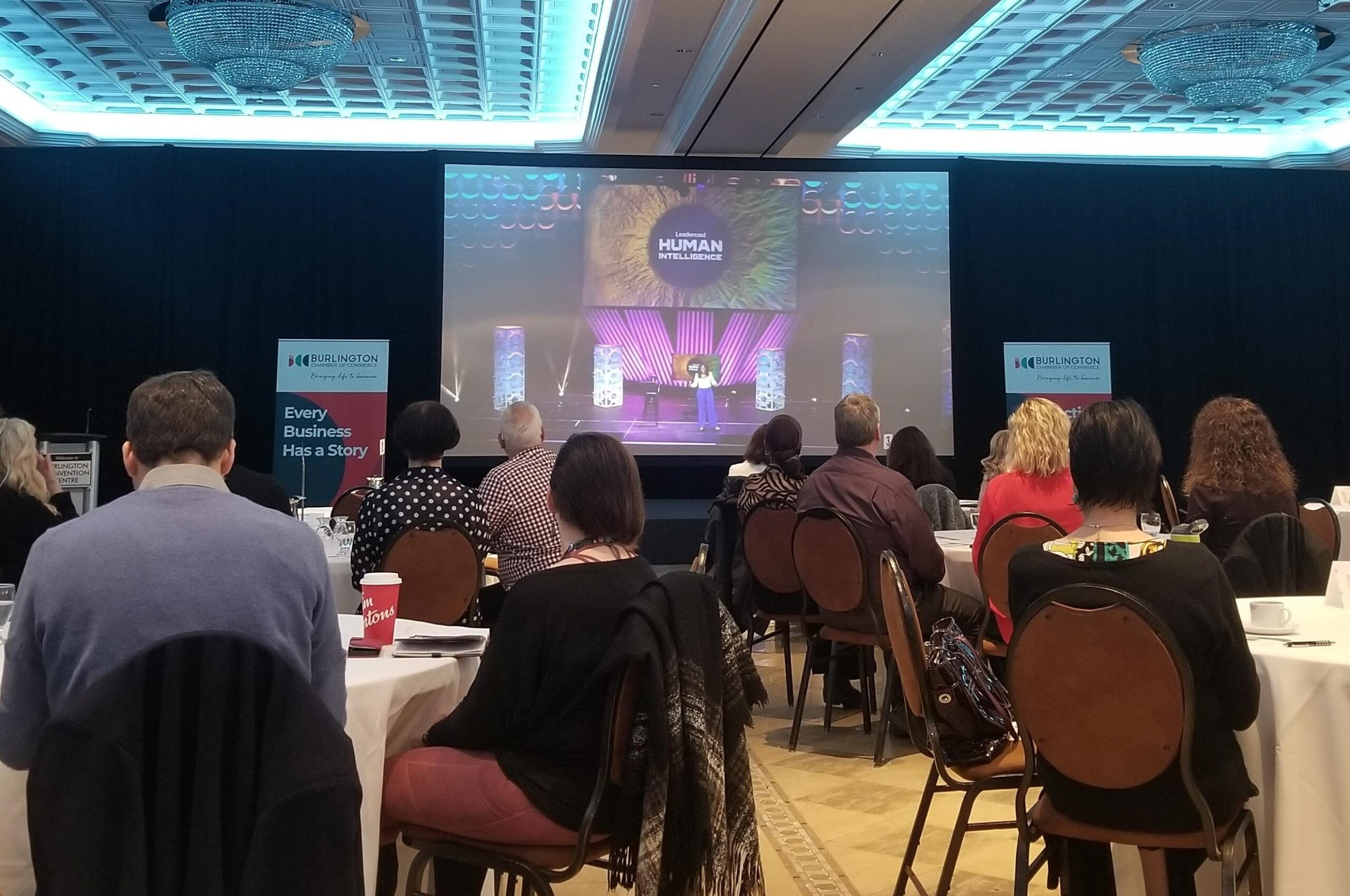Business leaders and entrepreneurs gathered last week to attend the Leadercast 2023 conference virtually, hosted by the Burlington Chamber of Commerce at the Burlington Convention Centre.
Leadercast has been operating for nearly 20 years, offering leaders insights and shifts in perspective to make the most out their teams and businesses. Their aim is for each person to leave “inspired, better equipped, and motivated to lead in new ways.” The yearly conferences have unique themes, but all are aimed at organizational leaders, though new products for teams were touted in between speakers.
The theme of this year’s conference was human intelligence; all speakers expounded on the importance of the human in leadership. The speakers were all experts in various aspects of leadership, beamed into Burlington and other places across North America from the live event in Newport, Kentucky.
Terry Caddo, president and CEO of the Burlington Chamber of Commerce, offered welcoming remarks prior to the start of the conference as displayed on a big screen. In an effort to make the virtual event more of an experience, Leadercast organizers had a musician create theme songs for each speaker; the video of each song played for the in-person and virtual crowds after their official introduction by host Ashley Kirklen.

Each speaker took on a slightly different aspect of human intelligence and its importance to leaders; Andy Stanley, author, pastor, and founder of North Point Ministries, spoke about trusting your intuition. He noted that in boardrooms, it can be difficult to explain those gut feelings in the moment (perhaps particularly because we call them “feelings”), but that they are borne of experience and knowledge, even if you cannot bring all relevant experience to mind in the moment.
The second speaker, Dr. Radhika Dirks, an artificial intelligence (AI) expert, and co-founder of Seldn and XLabs, first outlined the truly terrifying situation with AI: some AIs have learned whole languages without being taught. They will generate falsehoods that sound plausible because of the way that they learn (to put together bits of language that are commonly together). And finally: we are entering a time where images, voices, and video can be so deeply faked that we are essentially entering a false reality online. It will become (and in some cases, is already) very difficult to tell if stories and videos depict actual real-life occurrences or are completely AI-generated.
Dr. Dirks’ solution?
Humans.
She suggested that working together with AI, and maintaining real human relationships in the real world with other humans will mitigate some of these issues. Dr. Dirks also pointed out that many other technological advances that initially terrified scientists and ethicists were ultimately brought to good order with the appropriate policies and safety checks in place, which are still needed with regard to AI. Finally, she invited all attendees to stand with her and pledge to only use AI for good. No one in the Burlington Convention Centre stood to take this pledge with her, though it seems unlikely that all Burlington attendees are potential criminal masterminds and infinitely more likely that the virtual format didn’t tempt anyone into active participation.

Other impactful speakers included UN disability rights advocate and “global changemaker” Eddie Ndopu and Stephanie Chung, global brand ambassador for private airline Wheels Up.
Ndopu, a South African activist and now author, who was diagnosed as a toddler with spinal muscular atrophy and given a very short expected lifespan, has defied all odds and now works to spread his message of inclusion for people with disabilities. He challenges leaders to give not just the bare minimum (which Ndopu calls level ‘0’) in terms of access to those with disabilities, but to “go beyond 0 to somehow affirm who we are.” He asks, “What would it really take to carve out a space where it’s not just access to a building, but access to beauty, joy, intimacy? All the things that make life worth living.”

Stephanie Chung’s main message was also one of inclusion and diversity. She got everyone in the room talking with an exercise that involved guessing the age and occupations of three people whose photos were displayed on the screen. Chung then took guesses from the live audience, all of which turned out to be wrong. Her mic drop was in their actual occupations and ages (spoiler alert): all were on the FBI’s Most Wanted List for various crimes. Her point was to not make assumptions based on bias and stereotype: leaders must strive to see employees and colleagues as individuals, for who they are: we’re “all complex creatures,” Chung says, who cannot and should not be reduced to stereotypes.
Other speakers included Joe Boyd, the CEO and managing partner of Leadercast; Jeremie Kubicek, author, leadership expert, and co-founder of GiANT; Erica Keswin, author and workplace strategist, who expounded on the benefits of bringing rituals into the workplace to create better connections and increase performance; and Dr. Henry Cloud, clinical psychologist, author, and leadership expert.
All brought their own spin to the human aspect of leadership. Terry Caddo spoke of the Burlington Chamber of Commerce’s own mission of creating opportunities for learning and making connections for Burlington’s business owners, leaders, and entrepreneurs. Tweaked just slightly, that sums up the overarching theme of this year’s Leadercast: making connections creates opportunity for all.



